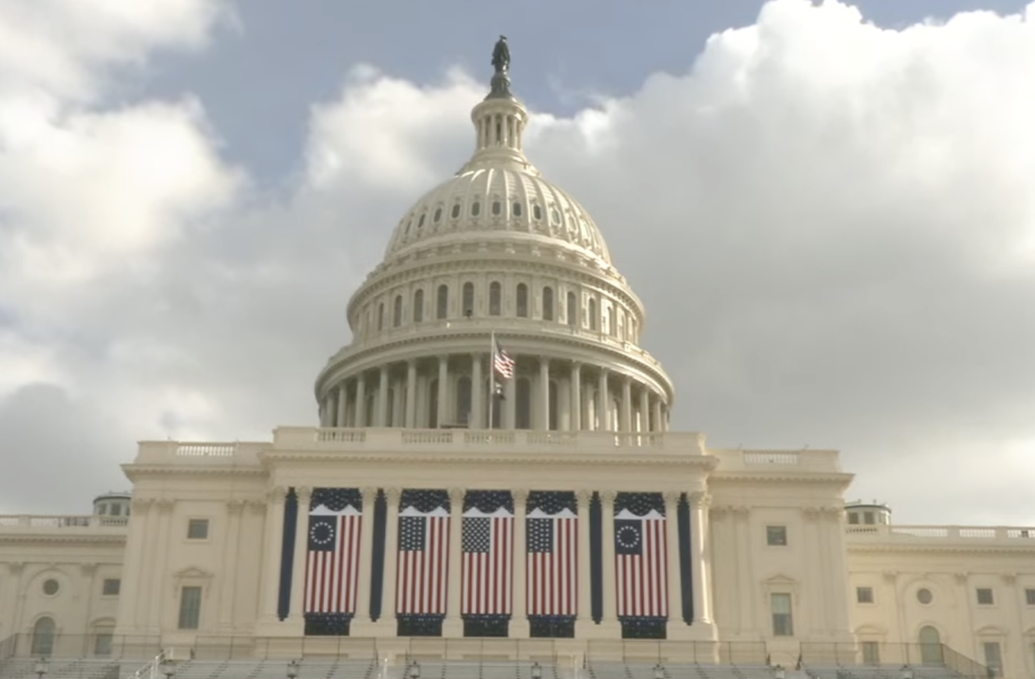Article for people who can't visit the website.
Republished here under their terms:
S&P says effects of Trump's tariff plans 'overwhelmingly negative'.
By Brett Rowland | The Center Square

(The Center Square) – A credit-rating agency reported Thursday that President Donald Trump's proposed tariffs could slow economic growth, increase inflation and push up unemployment.
The S&P Global Ratings economics team, in its first high level estimates, found the potential effects of the tariffs were "overwhelmingly negative," according to the report.
S&P analysts said the tariffs could slow gross domestic product growth, boost unemployment and inflation. It noted that "the effects on the U.S. are smaller than for trading partners." Gross domestic product, or GDP, is a measure of economic output.
Trump proposed a 25% tariff on goods imported from Canada and Mexico, and an additional 10% tariff on goods imported from China. Last-minute negotiations ended with a one-month reprieve for both Mexico and Canada.
S&P noted the uncertainty around Trump's tariff plans creates problems for businesses and U.S. families.
"Uncertainty around the path of U.S. policy and its objectives is high, and confidence bands around our forecasts are correspondingly wide," according to the S&P report. "Moreover, the ongoing deal-making mode of the new administration risks complicating long-term decision making by both firms and households."
On Tuesday, Trump paused his plans for 25% tariffs on goods from Mexico and Canada while starting talks with China on a 10% additional tariff over fentanyl smuggling.
On Saturday, Trump ended decades of duty-free trade between the U.S., Mexico, and Canada with a 25% tariff on imported goods from the two countries, with a lower 10% tariff on Canadian energy resources. Trump initially said he'd keep the tariffs in place until the illegal fentanyl trade subsided. He also added a 10% tariff on imports from China over that country's role in producing the chemicals needed to make fentanyl, a powerful opioid blamed for the majority of U.S. overdose deaths.
Two days after imposing tariffs on U.S. neighbors, Trump relented after reaching temporary deals with Mexico and Canada. Mexican President Claudia Sheinbaum said Mexico will immediately reinforce the border with 10,000 members of the National Guard in a move to stop drug trafficking. Drug trafficking that has been a problem for both the U.S. and Mexico for decades. Canadian Prime Minister Justin Trudeau also promised to reinforce the northern U.S. border in exchange for a pause on tariffs.
China hit back earlier this week with limited tariffs on U.S. imports. The Customs Tariff Commission of the State Council of China put additional tariffs on some U.S. imports while filing a complaint with the World Trade Organization.
A credit-rating agency reported Thursday that President Donald Trump's proposed tariffs could slow economic growth, increase inflation and push up unemployment.

Unavailable due to legal reasons. Site doesn't serve for GDPR countries. Care to copy the article for people like me?
Article.
S&P says effects of Trump's tariff plans 'overwhelmingly negative'.By Brett Rowland | The Center Square
(The Center Square) – A credit-rating agency reported Thursday that President Donald Trump's proposed tariffs could slow economic growth, increase inflation and push up unemployment.
The S&P Global Ratings economics team, in its first high level estimates, found the potential effects of the tariffs were "overwhelmingly negative," according to the report.
S&P analysts said the tariffs could slow gross domestic product growth, boost unemployment and inflation. It noted that "the effects on the U.S. are smaller than for trading partners." Gross domestic product, or GDP, is a measure of economic output.
Trump proposed a 25% tariff on goods imported from Canada and Mexico, and an additional 10% tariff on goods imported from China. Last-minute negotiations ended with a one-month reprieve for both Mexico and Canada.
S&P noted the uncertainty around Trump's tariff plans creates problems for businesses and U.S. families.
"Uncertainty around the path of U.S. policy and its objectives is high, and confidence bands around our forecasts are correspondingly wide," according to the S&P report. "Moreover, the ongoing deal-making mode of the new administration risks complicating long-term decision making by both firms and households."
On Tuesday, Trump paused his plans for 25% tariffs on goods from Mexico and Canada while starting talks with China on a 10% additional tariff over fentanyl smuggling.
On Saturday, Trump ended decades of duty-free trade between the U.S., Mexico, and Canada with a 25% tariff on imported goods from the two countries, with a lower 10% tariff on Canadian energy resources. Trump initially said he'd keep the tariffs in place until the illegal fentanyl trade subsided. He also added a 10% tariff on imports from China over that country's role in producing the chemicals needed to make fentanyl, a powerful opioid blamed for the majority of U.S. overdose deaths.
Two days after imposing tariffs on U.S. neighbors, Trump relented after reaching temporary deals with Mexico and Canada. Mexican President Claudia Sheinbaum said Mexico will immediately reinforce the border with 10,000 members of the National Guard in a move to stop drug trafficking. Drug trafficking that has been a problem for both the U.S. and Mexico for decades. Canadian Prime Minister Justin Trudeau also promised to reinforce the northern U.S. border in exchange for a pause on tariffs.
China hit back earlier this week with limited tariffs on U.S. imports. The Customs Tariff Commission of the State Council of China put additional tariffs on some U.S. imports while filing a complaint with the World Trade Organization.